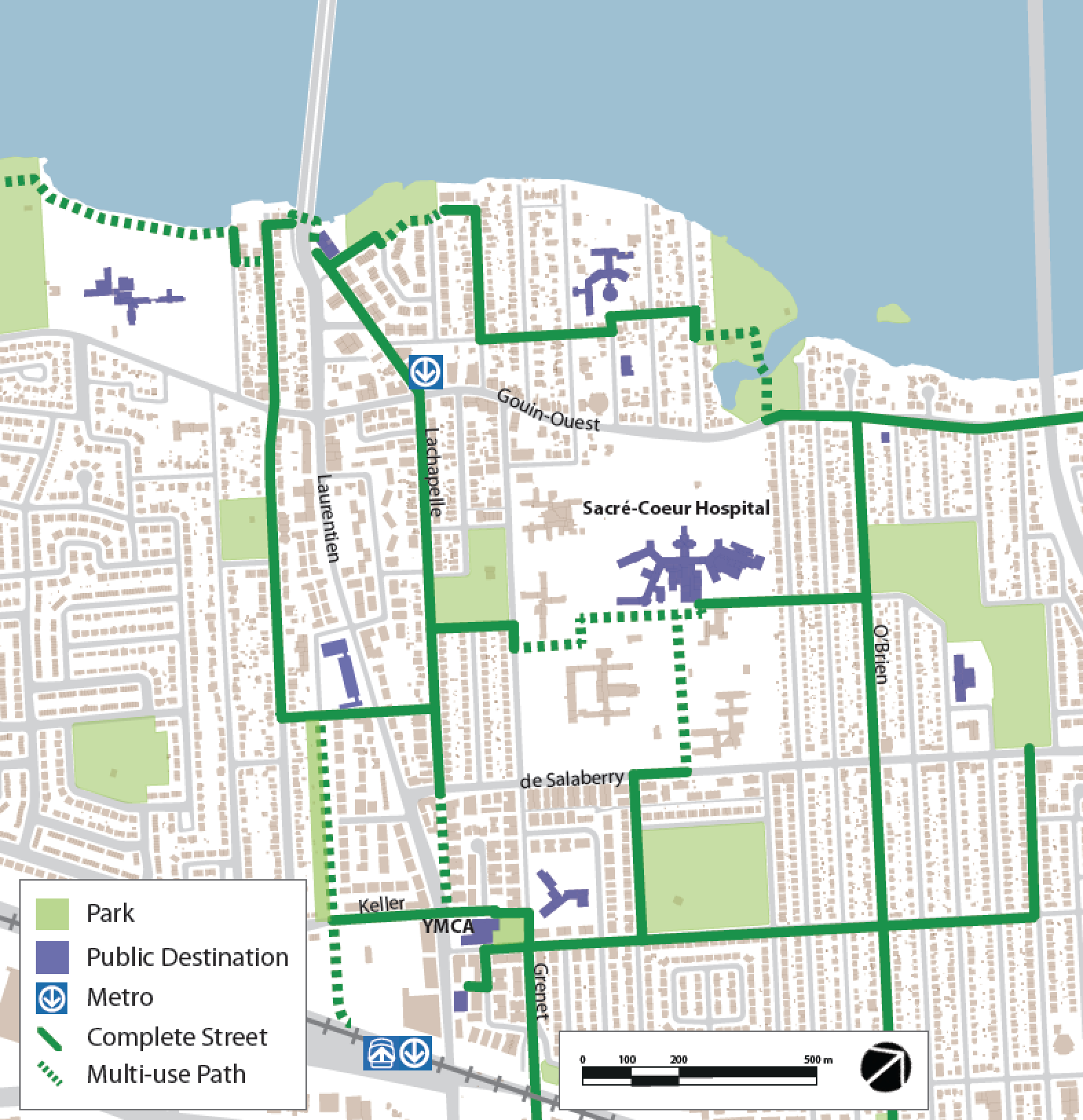Green and Blue: Cartierville Shows its Colours
By: Simon Chauvette, Mark Elsworthy, Alanna Felt, Marion Gale
McGill University School of Urban Planning
Studio 1
Fall 2012
Introduction
Following detailed study of the Gouin-Laurentien area, this plan was prepared to assist in the revitalisation of the neighbourhood and to guide its future development. On 18 November 2012, the World Bank issued a report warning that by the year 2100, the global temperature will rise by four degrees Celsius. This shift will be marked by extreme heat waves, declining local food stocks, loss of ecosystems and biodiversity, and a severe rise in sea level. This warning has particular implications for the City of Montreal regarding significant increases in temperature and sea level. As such, the development plan outlined below includes a series of goals, objectives and actions which will mitigate these risks, based on the vision and values outlined below.
Vision
The Gouin-Laurentien area of Cartierville will become a unified and green neighbourhood where residents from all cultures and economic backgrounds can live, work and play. In twenty years’ time, the sector will be socially, economically and environmentally sustainable. The neighbourhood’s unique identity will be evident, and its integration within the City of Montréal will be reinforced. Two vibrant cultural and economic nodes will contribute to the connection of the different urban fabrics in the area, and mark the entry points to the neighbourhood and the island of Montréal.
Master Plan
Values
- Environmental sustainability: the built environment should be coherently integrated into the natural environment and have the capacity to adapt to climate change.
- Social equity: all members of the community should have equal access to employment, cultural, educational, and housing facilities;
- Social cohesion: individuals in the community should have the opportunity to interact freely;
- Dynamic economy: diverse employment opportunities and commercial activity should be locally available; and
- Identity: the area should have a unique and strong sense of place.
Goal 1. Manage resources at the source
Goal 2. Enhance local and regional transportation choices and connections
Goal 3. Strengthen identity through local features
Goal 4. Foster a complete community
Key sectors of intervention
Green Network
Activity Map








